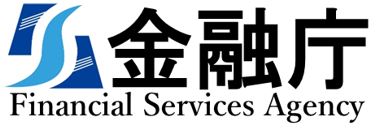The first thing you should know about the Japanese FSA is that online Forex brokers operating in Japan aim work only with Japanese customers (often even lacking an English website version) while Japanese retail customers are discouraged from working with non-Japanese brokers. This makes the Japanese Forex industry stands apart from the rest of the world. This probably makes studying the FSA's regulations worthy only to foreign traders residing in Japan.
 The
The
To streamline the operations of the FSA, there is a Commissioner, Securities and Exchange Surveillance Commission, and Certified Public Accountants and Auditing Oversight Board.
The FSA has its own Vice Minister for International Affairs whose job is to promote effective negotiations with foreign authorities and regulators. The Commissioner works with the strategy and management bureau, policy and markets bureau, supervision bureau, and administrative law judges.
It is the Securities and Exchange Surveillance Commission, which through its divisions regulates and supervises the retail trading brokerage companies working in Japan.
The role of the FSA
The FSA aims to achieve financial stability and effective intermediation, sustainability and preparedness to new risks, international competitiveness and prevailing anti-money laundering compliance. The role is fulfilled by the following commitments:
Monitor and supervise
The FSA comprehensively monitors each stage of funds flow in the investment chain. Furthermore, the organization constantly reviews whether an independent or entity, which buys/sells or manages financial products, follows their fiduciary duties properly by putting customers’ interest before everything else. The FSA also establishes measures to maintain the credibility of accounting and auditing. The FSA regularly interviews regulated companies, including Forex brokers, to assess the manner in which they deal with their customers. Furthermore, the organization regularly reviews corporate governance practices of financial institutions. Apart from reviewing the sustainability of a financial organization, the FSA also evaluates the risk management procedures.
Investigate and inspect
In case the FSA has reasonable suspicion that some company acts in breach of the regulating laws, the FSA may conduct investigations and inspect the violator's activity. The agency can either act on its own or with the help of other government bodies who can assist with investigation of criminal activity.
New risks
Considering the fact that electronic and algorithmic trading has reached widespread prominence in the financial sector, the FSA has assigned cyber security as one of its top priorities. Given the impact the COVID-19 pandemic had on the financial world, the FSA now also seeks to make sure that market participants are prepared to such global disturbances in the future.
Global coordination
The FSA cooperates with overseas financial service regulators in the case of complex cross border transactions. Furthermore, the FSA performs
Who should register?
The following is the list of organizations who should register with the FSA:
- Banks
- Foreign banks' agent banks
- Electronic payment services operators
- Financial instruments business operators (this includes Forex brokers, which are classified as Type I FIB)
- Insurance companies
- Trust companies
- Non-bank financial companies
- Financial market infrastructures
- Mutual financing providers
- Audit firms
Registration and compliance requirements for currency trading brokerages includes:
- A Forex broker who wishes to register as a Financial Instruments Business Operator should have a net asset value of at least ¥50 million.
- The Forex broker should have specific procedures to avoid conflict of interest.
- Client money should be held in a trust bank accounts. It cannot be used as collateral by the Forex broker in any manner (segregated management of money).
- The maximum leverage that can be allowed for clients is 1:25.
- There should be established internal rules for running the company.
- An acceptable external audit of financial statements and internal control is a must. In this regard, a Forex broker should prove that they have made arrangements for a proper external audit.
- Employees should have sufficient knowledge about compliance and risk management procedures.
- None of the employees should have any past history of involvement in organized crime.
- Advertisements should not exaggerate the services provided. If the broker’s website provides details in Japanese language, then it is a must for the broker to register with the FSA in Japan.
- The company should have a clear
decision-making body. - There should be a physical office in Japan from where the business should be conducted. Additionally, there should be a minimum of two officers who have at least three years of experience in running a similar business.
- The staff should have adequate training in processing complaints and resolving disputes.
Powers at FSA's disposal
Impose fine or administrative restrictions
In November 2020, Tokyo Stock Exchange and Japan Exchange Group have been ordered to make improvements in its business operation processes. This followed a major technical outage on the exchange in October that year.
Revoke license
Based on an
Issue warnings
In August 2019, the FSA has issued warning to Binance Holdings Limited, the operator of the famous Binance exchange, for violating the Payment Services Act by operating an unregistered exchange business in Japan.
Conclusion
Evidently, FSA's focus is concentrated more on keeping the unregistered companies out of dealing with Japanese traders than on shepherding the local brokers, which, admittedly, are usually well-behaved and require little regulatory enforcement. Yet if you ever plan to open a trading account with an FSA-regulated broker, it is useful to understand how the country's Financial Services Agency operates.
If you want to share your opinion, observations, conclusions, or to ask a question regarding Japan's Financial Services Agency (JFSA), feel free to start a discussion on our Forex forum.